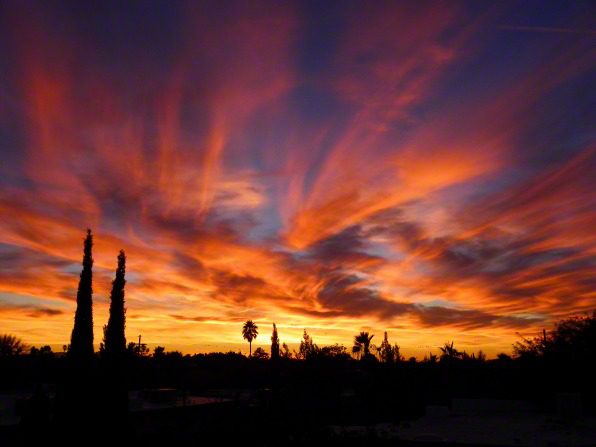
A few days ago, I mentioned that my wife has lately been reading a great deal by and about Elie Wiesel for a presentation that she’s shortly to give. She recently called the following passage to my attention, from Wiesel’s All Rivers Run to the Sea: Memoirs (Knopf/Doubleday, 2010):
One morning we came upon an enormous sign under the Arizona sun: “Indian Reservation 100 Miles.” Instantly we decided to take the detour. None of us had ever met an Indian, our knowledge extending no further than the movie stereotypes of young savages and wise old men. The Indians were always the ones on the attack, shrieking and killing. But why not? In their eyes, the white man was nothing but a rapacious armed invader seeking to drive them from their lands and reduce them to dependency by imposing his language and culture. And all with a revoltingly clear conscience. The man who greeted us in a tent decorated with feathers and other tribal insignia might have stepped out of a movie. Tall, erect, impassive, and majestic, he had a slow, dignified walk and a weathered, angular face. We hung on his every word as he explained the Indian concept of life and death. He was respectful, and he inspired respect. At one point he asked us to sign his visitors’ book. Dov urged me to go first. I don’t know why, but I signed in Hebrew, and the Indian rewarded me with a hearty pat on the back. “Sholem aleichem,” he said in Yiddish. Dov and Leah nearly collapsed in surprise and laughter. It turned out our host was Jewish, a camp survivor from Polish Galicia who had first emigrated to Mexico. When things went badly there, he moved to Arizona and made his living as an Indian by day while remaining a Jew by night. In my diary I wrote: “America is truly a wonderland. Even the Indians speak Yiddish.”
Somehow, I think that it doesn’t really rise to serious consideration as evidence for the Book of Mormon.
***
Marking a just-passed anniversary:
This quotation about the 2005 Jyllands-Posten Muhammad cartoon controversy in Denmark, from Graham E. Fuller’s 2011 book A World without Islam, may be relevant here:
The cartoon incident did not pit believing Danes against nonbelieving Danes, but rather nonbelieving Danes against the supreme cultural symbol of a small, disadvantaged, and frightened minority that lacks voice or status in Europe—in their eyes, a direct assault against their very being and a mockery of their presence. (204)










